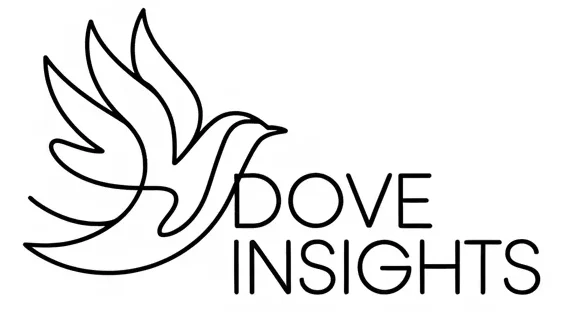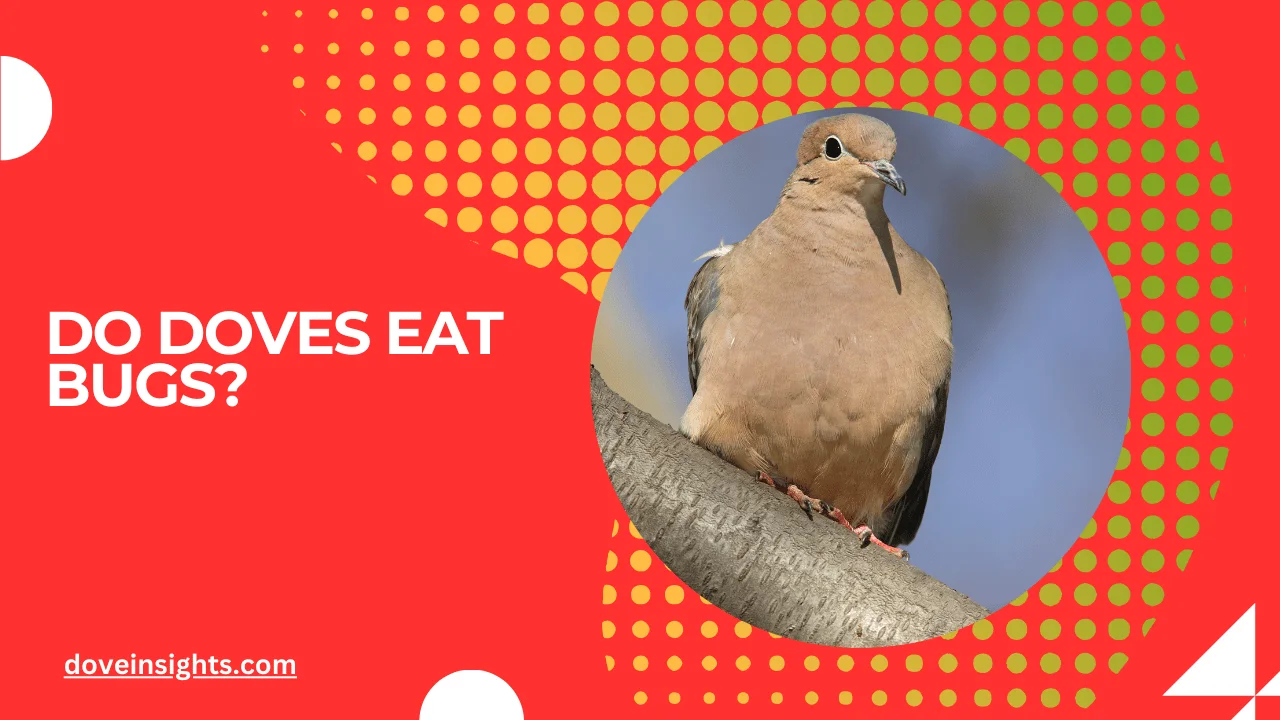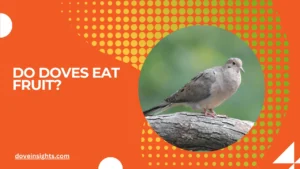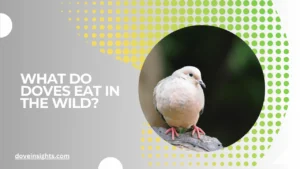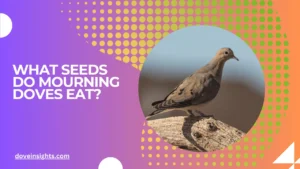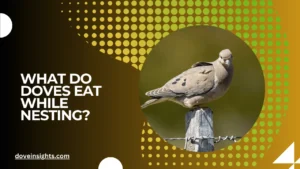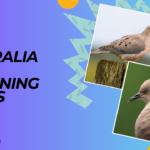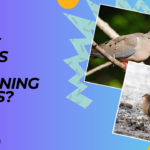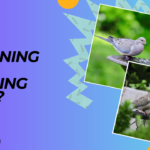When you think of a dove, what comes to mind? Most people picture a peaceful, serene bird, gracefully flying in the sky or perched calmly on a branch.
Doves are often associated with symbolizing peace, love, and even hope. But while these gentle creatures are admired for their beauty and elegance, they have an important role in the ecosystem as well. One fascinating question that often arises about doves is whether they eat bugs.
The thought of a dove feasting on insects seems almost contradictory to their peaceful image, yet understanding their dietary habits can shed light on their true nature and how they contribute to the environment.
While doves are primarily seed eaters, their diet is more varied and complex than most people realize. They may not be the first bird you think of when you consider insectivores, but they certainly don’t shy away from consuming small bugs on occasion.
In fact, their diet can include a variety of natural foods beyond seeds, including insects, snails, and even small pebbles to aid in digestion. But how often do doves eat bugs, and why is it significant for their health and survival?
This article will explore the dietary habits of doves, investigating how and why they sometimes rely on insects to meet their nutritional needs.
By the end of this article, you will have a deeper understanding of what doves eat, how their diets vary depending on their environment, and why they sometimes turn to bugs for sustenance.
Whether you’re a bird enthusiast or just curious about the fascinating world of doves, you’ll gain valuable insight into the feeding habits of these beautiful creatures.
Contents
Understanding the Dove’s Diet
Doves are often considered granivores, meaning their primary food source consists of seeds. However, this is a simplified view of their diet. In the wild, doves are opportunistic feeders that also consume grains, berries, fruits, and small plants.
Their feeding habits are adapted to their environment, which can range from forests and grasslands to urban areas and farmlands. While seeds remain their primary source of nutrition, their varied diet ensures they get the necessary vitamins and minerals to stay healthy.
In addition to seeds, doves may consume small invertebrates, including insects, earthworms, and snails. These are not a regular part of their diet, but when available, they can provide additional protein and nutrients that might not be present in seeds.
Interestingly, doves are known to forage on the ground, which increases the likelihood of them coming across small bugs. But unlike carnivorous birds, such as hawks or robins, doves do not actively hunt insects.
Instead, they feed on whatever is available to them, including insects they may encounter while searching for seeds or plants.
The Role of Insects in a Dove’s Diet
While doves primarily rely on seeds for nutrition, the occasional consumption of insects is not uncommon. Insects provide a protein-rich food source that can help supplement the dove’s diet, especially when other food is scarce.
Insects are particularly important for young doves or chicks, as they need extra protein for growth and development.
Doves may eat ants, grasshoppers, beetles, and caterpillars—all of which can be found in grassy areas or forests. These insects are typically consumed while the doves are foraging on the ground or in areas with a rich presence of invertebrates.
The protein from insects is especially important during the breeding season, as it helps provide the extra energy needed for egg production and chick development.
However, while insects can play a role in a dove’s diet, they are not a primary source of sustenance. Doves are more likely to consume insects opportunistically rather than actively seek them out. This means that insects are considered an occasional supplement rather than a staple in their diet.
Doves in Urban Environments and Their Diet
Doves are highly adaptable creatures and are often found in urban environments, where they have access to a variety of food sources. In cities, doves may rely on human-provided food, such as discarded seeds, breadcrumbs, or grains. But in urban areas, insects are still an important part of their diet.
Urban doves often forage on the ground, searching for small bugs or even garbage that may contain insect remnants.
Insects like flies, cockroaches, and even spiders are common in cities and can provide an additional protein source for doves.
While these insects may not be as abundant or nutritious as those found in rural or natural environments, they are still an important part of a dove’s diet, particularly in times of food scarcity.
Urbanization has also caused doves to adapt to feeding in areas that were once inhospitable to wildlife. As they adapt to city life, their diets have evolved to incorporate not just seeds and plants but also insects and even small scraps left by humans.
This has made doves extremely resourceful and capable of thriving in human-dominated habitats.
How Doves Forage for Insects
Doves have a unique feeding behavior that can sometimes lead them to consume insects. Unlike raptors or songbirds, which actively hunt for prey, doves are more passive feeders.
They primarily forage for seeds, but while doing so, they may encounter small bugs that they will readily eat. Doves typically feed on the ground, where insects like ants, beetles, and caterpillars are often found.
They may also find insects while pecking at the soil, looking for seeds, or grazing on grains. Doves have a keen sense of sight that allows them to spot small invertebrates that are often hidden among plants or dirt.
Their ability to quickly peck at the ground helps them consume insects without having to spend much time searching for them.
Since doves do not have the strong, sharp beaks of insectivorous birds, they rely on their quick reflexes to catch insects they encounter. They may also eat small snails and worms that they come across while foraging, providing another source of protein and nutrients.
The Impact of Eating Bugs on Dove Health
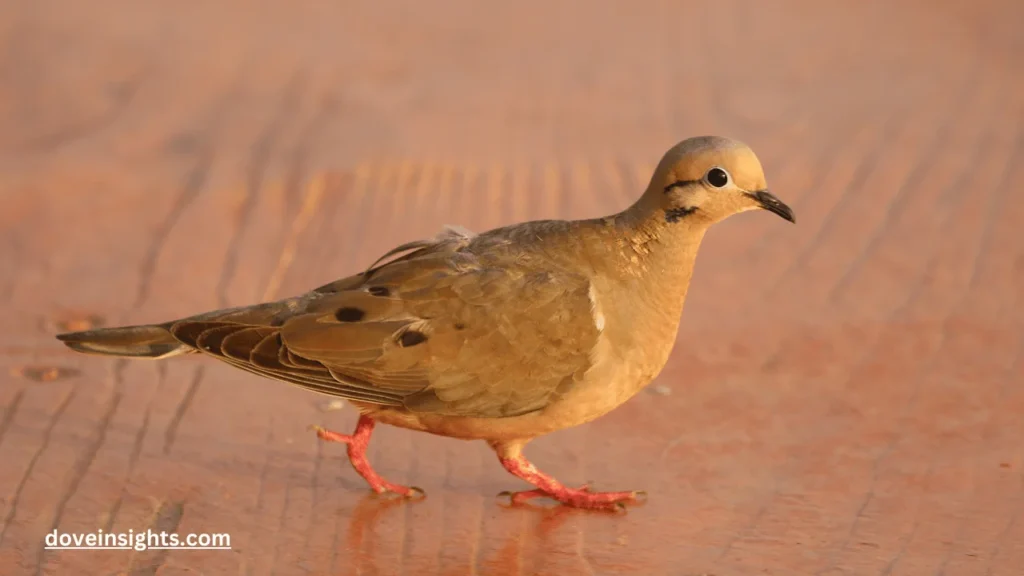
Eating insects, while not a significant portion of a dove’s diet, can have several health benefits. Insects provide a good source of protein, which is vital for maintaining muscle mass, especially during the breeding season.
The additional nutrients from insects can help doves stay healthy and reproduce successfully.
For young doves, the extra protein from insects is essential for their growth and development. Chicks rely on high-protein foods to develop strong bones, muscles, and feathers.
As such, parents will often incorporate insects into their diet to ensure that their offspring are well-fed and able to thrive.
Moreover, insects also provide essential fats and vitamins that help doves maintain their energy levels, which is especially important during the colder months when food sources are scarce.
For doves living in more natural environments, where seeds and plants may be less abundant, insects serve as an important food source to help them survive.
Conclusion
While doves are predominantly seed-eating birds, they do, on occasion, eat bugs. These insects provide a valuable source of protein and essential nutrients, particularly during the breeding season or when food sources are scarce.
Doves are opportunistic feeders, meaning they will consume insects whenever they encounter them while foraging for seeds or plants. Though insects do not make up a large part of a dove’s diet, they are still an important supplement that contributes to the bird’s health and well-being.
Understanding the diet of doves not only offers insight into their feeding behaviors but also emphasizes their remarkable ability to adapt to various environments, from forests to urban settings.
Doves may be known for their peaceful nature, but their feeding habits are a testament to their resourcefulness and their vital role in maintaining a healthy ecosystem. By learning more about their diets, we gain a deeper appreciation for these fascinating birds and the complexity of the natural world around us.
FAQ’s
Do doves eat insects regularly?
While doves primarily feed on seeds, they do occasionally eat insects as a supplement to their diet. Insects provide a valuable source of protein, especially during breeding season when extra nutrients are needed. However, insects are not a regular or primary part of their diet, and doves usually consume them opportunistically when foraging for other food sources.
What types of insects do doves eat?
Doves are known to consume a variety of small insects, including ants, grasshoppers, beetles, caterpillars, and sometimes snails. These insects are often found in the grassy areas, forests, or even urban environments where doves forage for food. While doves do not actively hunt insects, they will eat them if they encounter them while searching for seeds or plants.
How do doves find insects to eat?
Doves are opportunistic feeders and will eat insects they come across while foraging on the ground. They are known to peck at the soil or vegetation in search of seeds and may encounter insects like ants or beetles during this process. Doves also rely on their keen eyesight to spot insects hidden in the grass or soil as they search for food.
Are insects a necessary part of a dove’s diet?
No, insects are not a necessary or significant part of a dove’s diet. Seeds make up the bulk of their food intake, and insects are only consumed occasionally. However, insects can provide extra protein and nutrients, especially when food is scarce or during the breeding season when doves need additional energy and nutrients to raise their young.
Do doves eat bugs in urban areas?
Yes, doves living in urban environments may eat insects like flies, cockroaches, and spiders. Urban doves often forage on the ground or in places where insects are abundant, such as gardens, parks, or under streetlights. While human food sources are often a significant part of their diet, insects still play a role in providing protein and other nutrients.
Do doves prefer insects over seeds?
No, doves generally prefer seeds over insects. They are primarily granivores and seek out seeds as their main food source. Insects are considered an occasional supplement to their diet rather than a preferred food. Doves are opportunistic and will consume insects only if they encounter them while foraging.
